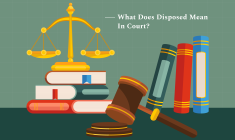Insurance ads love to sell the dream of safety and peace of mind. You’ve seen it—smiling families, friendly agents, the whole “we’ve got you covered” vibe. Quick claims, total protection, no worries.
Sounds nice, right? But when it’s time to file that claim, reality often hits harder than expected. More people are realizing that some of these “promises” don’t actually hold up, and now the legal action for deceptive insurance practices is only getting brighter.
The Allure Of False Promises
Let’s be honest—insurance ads are crafted to make you feel safe. That’s the whole game. Slogans about trust and security pull at emotions way more than they inform. What they don’t shout about are the sneaky exclusions tucked away in the fine print.
Trouble creeps in when those ads start bending the truth. Marketing materials that add words like “comprehensive” or “guaranteed protection” sound airtight… until you find out that your “comprehensive” policy doesn’t actually cover what you thought it did.
For a lot of folks, that rude awakening comes only after their claim gets denied. And that’s when frustration sets in. What felt like a solid promise turns into a painful lesson about how clever wording—and a few missing details—can twist expectations.
Deceptive Insurance Practices: When Marketing Crosses the Line
There’s a razor-thin line between clever marketing and flat-out deception. In insurance, that line gets blurry fast. When ads oversell coverage or skip the important details, it stops being just “creative marketing”—it becomes misleading.
Think of ads that say “any accident” or “every emergency.” Sounds comforting, but those same policies usually come with a long list of exceptions. Or the ones that use happy testimonials and dramatic footage to make you feel bulletproof. Even cautious customers can fall for it.
Now regulators are cracking down. Courts are keeping a closer eye, too. When a company’s rosy promises tip into dishonesty, the fallout isn’t just financial—it’s reputational. The takeaway?
Being honest in advertising isn’t some optional virtue—it’s a survival strategy. Here are some of the major red flags.
Artificial Urgency
Legitimate incurers rarely need an immediate discussion. Brokers often create a false sense of urgency and pressure you to act on something immediately. This is predatory insurance sales but you need to evaluate it carefully before taking any action.
Misleading Quotes
Deceptive insurance practices often start with unrealistically low quotes. But once you show interest, they will increase the coverage charge and provide less protection than what they initially promised. They will promise a lot and deliver less when they try to get a client.
Refusing To Provide A Written Statement
Honest brokers will always provide detailed documentation. If any insurer is suggesting that you just trust them on their words or claiming that the paperwork will make the process slow, it means they are trying to hide something.
Requesting Personal Information
An authentic insurance process has a verification period and comes with formal underwriting. They might even ask for instant payment, your bank account details, and Social Security numbers when they are interacting with you for the very first time.
Unverified Credentials
Some of the operators pose as licensed insurance professionals, but they are not authorized. They might sound like a legit company or claim associations with legitimate insurers, who they don’t even represent.
The Role Of Consumer Protection Laws
Consumer protection laws are there for a reason: to keep ads real and understandable. With insurance, the stakes are especially high.
People depend on these ads to make big, financial choices.. When the coverage doesn’t match the hype, the result can be serious financial trouble.
Each state’s insurance commission monitors how companies sell and advertise their policies. They can slap fines on violators or even suspend licenses. On the federal side, trade laws ban false or misleading claims altogether, and consumers can fight back in court.
Still, most legal experts say enforcement isn’t enough. People also need to spot the red flags themselves—before signing anything. Awareness is half the battle. When buyers know what to watch for, shady tactics lose their power.
The Importance Of Transparency
If insurance companies want to rebuild trust, plain communication has to come first. That means no sugarcoating—just clear explanations about what’s covered and what’s not. When both sides know the deal upfront, misunderstandings and lawsuits drop off dramatically.
A lot of legal pros argue that policies should be written in everyday language, not legal riddles. It’s not just about compliance—it’s about respect.
Customers deserve to actually understand what they’re buying. Thankfully, more insurers are catching on that transparency isn’t just good ethics—it’s good business.
The Role Of Legal Experts
Consumer protection lawyers are basically the watchdogs of the insurance world. They’re the ones digging into policy wording, comparing ads to fine print, and calling out anything that smells off. Their work makes it harder for companies to hide behind slick marketing.
These attorneys often team up with regulators, pushing for tighter rules and tougher penalties when dishonesty surfaces.
It’s a crucial partnership—lawyers bring the evidence, regulators bring the enforcement. Together, they keep the industry (mostly) in check and remind everyone that integrity still matters.
Make Careful Choices
The road from deceptive insurance practices to courtroom verdicts says a lot about how truth can ultimately prevail. Sure, false advertising might bring quick profits, but it always catches up sooner or later.
People are wiser now—they’re reading the fine print, asking harder questions, and calling out the nonsense.
With stronger laws, sharper watchdogs, and a public that’s tired of being misled, the insurance world is slowly cleaning up its act. The hope? A future where “protection” actually means what it says—and customers don’t have to learn that lesson the hard way.
















